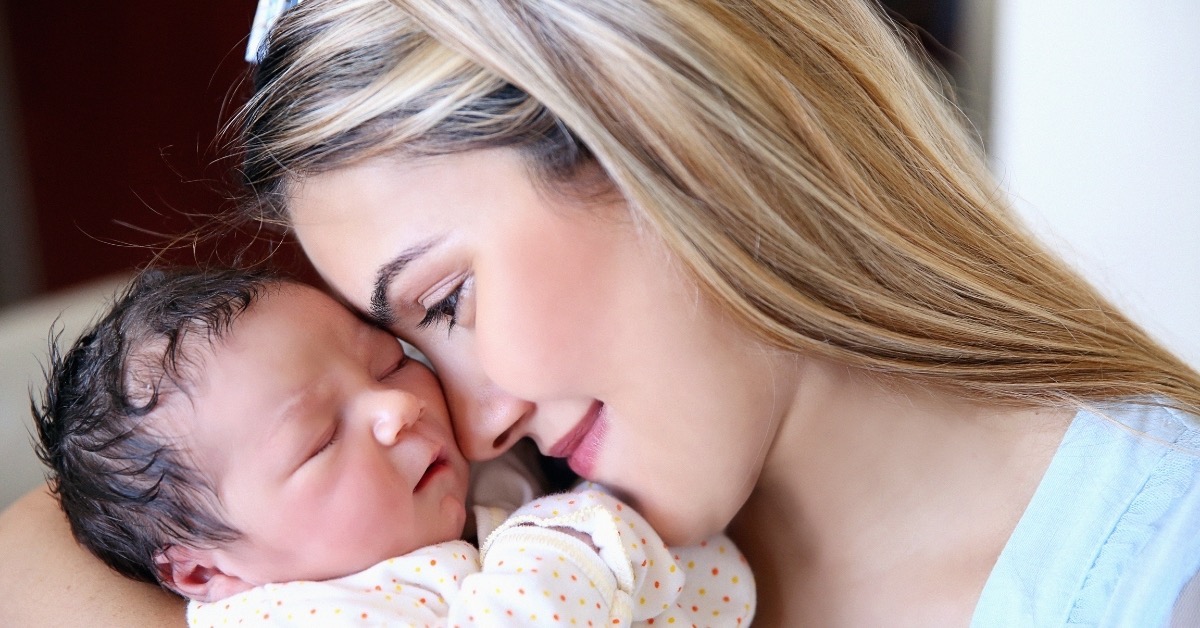
After giving birth, women can expect to experience a mix of powerful emotions, including joy, excitement, anxiety, and fear. Some new mothers experience a severe and persistent form of depression called postpartum depression. If you are suffering from this complication from giving birth, an appropriate postpartum depression treatment plan can help alleviate symptoms. It can also help you bond normally with your baby and fully enjoy the experience of new motherhood.
Topics covered on this page:
What Is Postpartum Depression?
Symptoms of Postpartum Depression
Causes of Postpartum Depression
When To See Your Doctor for Postpartum Depression
Complications from Untreated Postpartum Depression
Emergency Help for Severe Postpartum Depression
Best Postpartum Depression Treatment Center
Pathways effective and evidence-based therapy for postpartum depression can help you alleviate symptoms and bond with your child.
What Is Postpartum Depression?
A majority of women experience some degree of baby blues in the first weeks following childbirth. Symptoms of baby blues can include irritability, episodes of crying, mood swings, feelings of sadness, anxiety, sleep problems, and changes in appetite. Baby blues usually last no longer than two weeks or so. Postpartum depression can initially be mistaken for the common baby blues. However, the symptoms are more severe and can persist for a very long time. Eventually, the disorder can disrupt a new mother’s ability to care properly for her baby and to manage routine tasks.
Symptoms of Postpartum Depression
Symptoms of postpartum depression typically emerge the first several weeks after giving birth. But, symptoms can develop earlier, even during pregnancy. In other cases, the disorder may not appear for a year or so after giving birth. Symptoms of postpartum depression may include:
- Feeling depressed
- Extreme mood swings
- Crying frequently
- Inability to bond with your baby
- Isolating yourself from friends and family
- Sleep difficulties (insomnia) or excessive sleeping
- Extreme loss of energy, fatigue
- Reduced interest in previously enjoyed activities
- Intense anger or irritability
- Feelings of hopelessness
- Extreme loss of or increase in appetite
- Fearing that you're a bad mother
- Difficulty thinking clearly, focusing, or making decisions
- Feeling worthless, guilty, ashamed, or inadequate
- Feeling restless
- Intense anxiety, having panic attacks
- Thoughts about harming your baby or yourself
- Recurring thoughts of suicide
Causes of Postpartum Depression
There are multiple possible causes of postpartum depression, but emotional or physical problems may contribute to the disorder.
- Potential physical causes: After childbirth, women experience a severe loss of estrogen and progesterone in the body. These large losses of hormone production may contribute to postpartum depression. Hormones produced by the thyroid may also drop significantly, causing a new mother to feel sluggish, tired, and depressed.
- Potential emotional contributors: When a new mother is overwhelmed and getting too little sleep, it can be difficult to cope with even small daily challenges. She may experience anxiety about her ability to take good care of an infant. Her self-identity may become less stable, and she may feel a loss of control over her time and her life. These emotional factors may add to the conditions for the development of postpartum depression.
When To See Your Doctor for Postpartum Depression
If you begin experiencing one or more symptoms of depression during the weeks after giving birth, call your doctor as soon as possible. Be sure to tell your doctor if the symptoms persist after two weeks, or if they worsen. Your medical care provider can guide you through postpartum depression treatment while breastfeeding, if applicable. Without proper treatment, which may include inpatient postpartum depression treatment in some cases, postpartum depression can last for many months or even longer.
Complications from Untreated Postpartum Depression
Without effective treatment, postpartum depression can be an obstacle to bonding between a mother and infant, cause difficulties for families. It can also increase the risk of major depression in the future. It can also contribute to the potential for the father to become depressed too. In severe cases, male postpartum depression treatment may become necessary. Further, children whose mothers suffer from untreated postpartum depression are at increased risk of behavioral and emotional problems, with symptoms such as crying excessively, sleep difficulties, delayed language development, and eating disorders.
Emergency Help for Severe Postpartum Depression
If you find you are having thoughts about harming your baby or yourself, immediately get help from your partner, a family member, a friend, your doctor, or mental health professional. Another resource for discussing your feelings and concerns is the National Suicide Prevention Lifeline at (800) 273-TALK, or you can use their webchat option at suicide prevention lifeline.
If you think that you or your baby are currently at risk, call 911 for help immediately.
People experiencing depression may not recognize the problem or accept the fact that they are depressed. If it appears to you that a friend or family member is a victim of postpartum depression, help the person immediately seek medical attention.
Help For Postpartum Depression at Pathways Real Life Recovery!
Pathways Real Life Recovery Center is a postpartum depression treatment center, mental health and addiction treatment center in Utah. Our clients work with some of our region’s best mental health professionals, to develop personalized treatment programs to meet their individual needs. All members of our staff are available 24/7, so you will never reach a recording; you will always reach a therapist.

